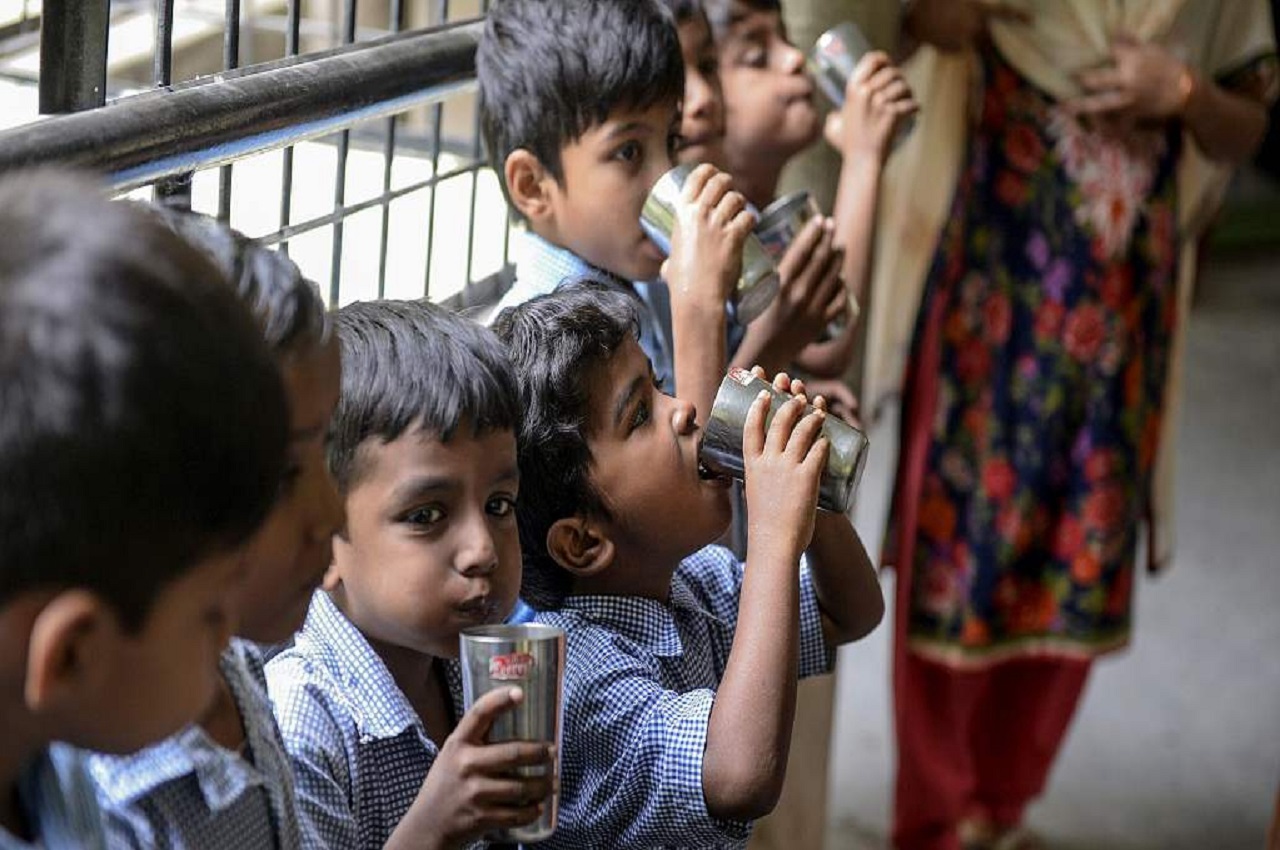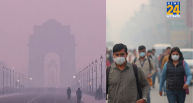New Delhi: A significant study-led by Nobel Laureate Michael Kremer has found that the central government’s Jal Jeevan Mission (JJM) can save 1.36 lakh lives of children under five every year.
The Jal Jeevan Mission seeks to provide safe and adequate drinking water through individual tap connections by 2024 to all rural households.
“We estimate that if JJM succeeds in this mission, it will prevent around 1,36,000 under-5 deaths per year. However, this will require that water delivered through JJM is free from microbiological contamination,” stated a paper by Nobel Laureate Michael Kremer.
In a paper titled ‘Potential Reduction in Child Mortality through Expanding Access to Safe
Drinking Water in India’ economists Michael Kremer, Akanksha Saletore, Witold Więcek and Arthur Baker suggested that the expected reduction in all-cause under-5 mortality from water treatment is around one in four.
A paper by Nobel Laureate Michael Kramer finds that #JalJeevanMission will save lives of 1.36 lakh under 5 children every year!@jaljeevan_ #NobelPrize pic.twitter.com/mXxMFWadPk
— DD News (@DDNewslive) October 11, 2022
The researchers note that in 2019, at the inception of JJM, more than 50 per cent of the population did not have access to safe drinking water.
The authors said that although geogenic contaminants such as arsenic, fluoride, and nitrate are widespread in certain regions of India, the most ubiquitous type of contamination is microbial which needs to be avoided.
“Diarrhea is the third most common responsible disease for under-five mortality in India. Water treatment is a cost-effective way to reduce diarrheal diseases and child mortality,” the researchers said.
A recent meta-analysis of 15 randomised controlled trials conducted by Kremer and others (2022) suggested that the expected reduction in all-cause under-5 mortality from water treatment is around one in four.
“This meta-analysis also suggests that water treatment is among the most cost-effective ways to reduce child mortality. Providing piped water is an important step towards improving water quality. However, it is critical that it be free of microbial contamination. Even in cases where water is treated at a central location, negative pressure in pipes can cause contamination,” the authors warn.
The study further suggests working with the Ministry and assisting the effort by testing possible solutions to water quality treatment to reduce child deaths in India.
Michael Kremer meets Officers of JJM
Michael Robert Kremer is an American development economist who was jointly awarded Nobel prize in Economics in the year 2019 with Abhijit Banerjee and Esther Duflo, for their experimental approach to alleviating global poverty.
Kremer had visited India in July this year. During his visit, Kremer interacted with Vini Mahajan, Secretary and senior officers from Department of Drinking Water and Sanitation, Ministry of Health & Family Welfare, UNICEF and other sector partners at Antyodaya Bhawan in New Delhi.
During the interaction, the Nobel laureate had said that nearly 30 per cent infant deaths can be reduced if safe water is made available to families for drinking.
While addressing officials, Kremer quoted findings of his studies and said that the new-borns are susceptible to water ailments and survey undertaken during their research, draws a conclusion that 1 in every 4 deaths, pertaining to children can be prevented with provision of safe water. Therefore, ‘Har Ghar Jal’ programme plays a crucial role in improving health parameters especially among children, he had said.













